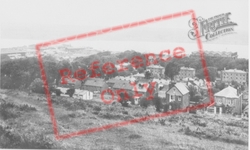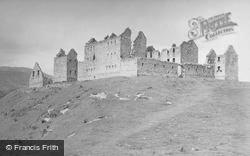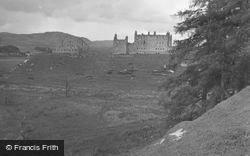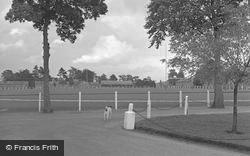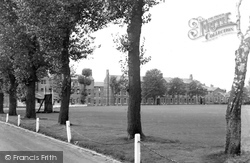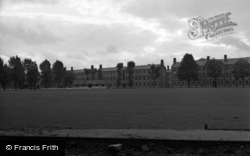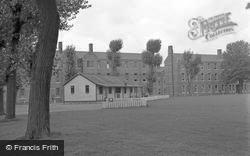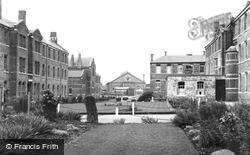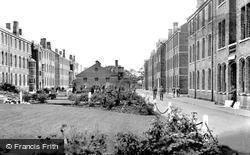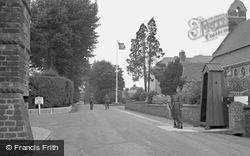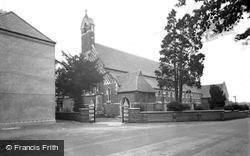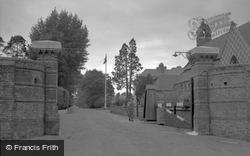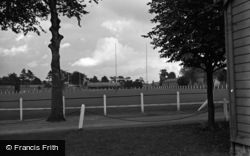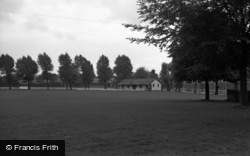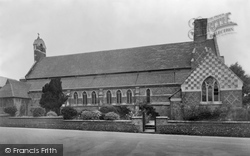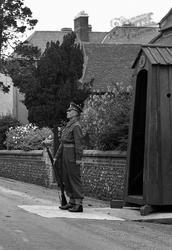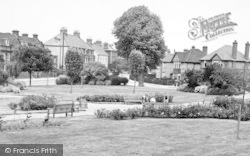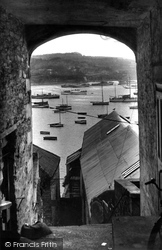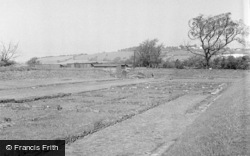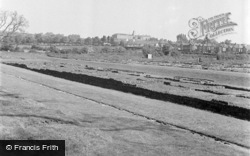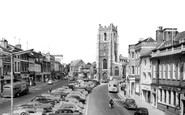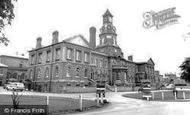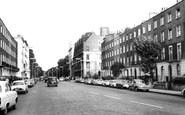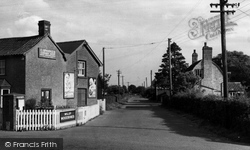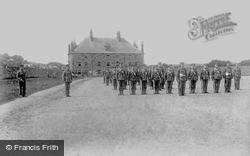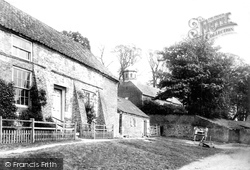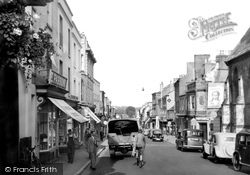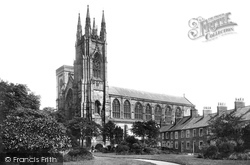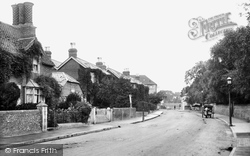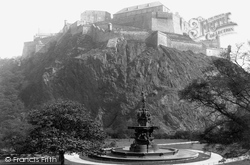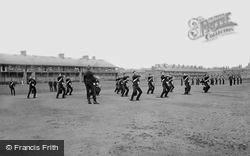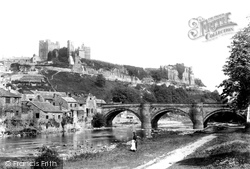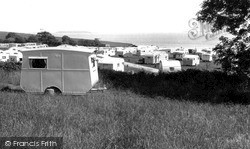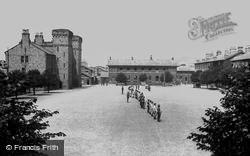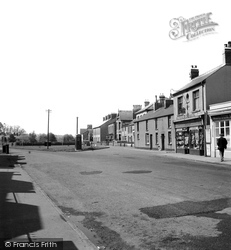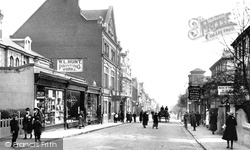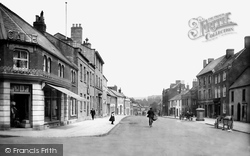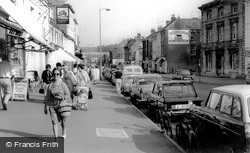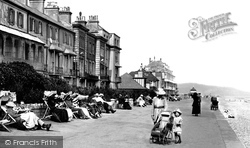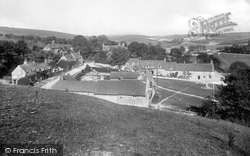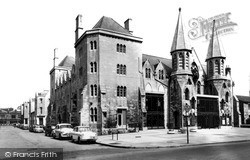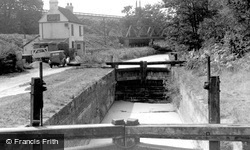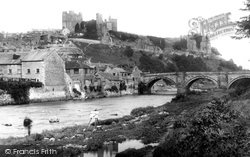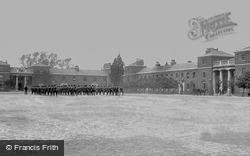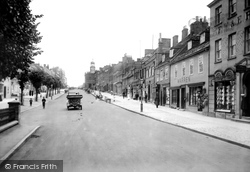Places
1 places found.
Those places high-lighted have photos. All locations may have maps, books and memories.
Photos
207 photos found. Showing results 41 to 60.
Maps
12 maps found.
Books
Sorry, no books were found that related to your search.
Memories
206 memories found. Showing results 21 to 30.
3 Tons To Blandford
I was 8 years old when I arrived in Blandford. It was lunchtime on a Sunday a week before the Somerset and Dorset Railway closed on the 6th March 1966. My dad was in the Royal Signals and he was being posted to the 30th ...Read more
A memory of Blandford Camp in 1966 by
Officers Batman
I was posted to the J.S.S.C., Little Chalfont, Buckinghamshire from my regiment in Germany {15/19 Hussars} and I was there for two years {1966-8}. I still have vivid memories of my time there; the officers houses' I worked at, the ...Read more
A memory of Latimer in 1966 by
My Very First Memory Of Sudbury Suffolk In 1966
Stepped off the train at Sudbury Station accompanied by my then boyfriend, who came from Monks Eleigh. We went to get the bus from the Market Hill. It was a Rules Coach. This photo is almost ...Read more
A memory of Sudbury in 1966 by
Where's The Bandstand?
My dad took me to see the old barracks being demolished and we had a vantage point from a bandstand next to RAOC. It last appears on 1963 map prior to Potters building the Hotel. It would appear that the extension has been ...Read more
A memory of Aldershot in 1964 by
1960s
I lived in Connaught Avenue, and went to Grove Road school (up to 1963). I had 3 local friends. One lived on Hounslow Heath in a prefab (now Frampton Road). We weren't allowed to go to the fairs there. I did see grass snakes though! Near ...Read more
A memory of Hounslow in 1963 by
Tdy At Raf Upper Heyford
I was temporarily stationed at RAF Upper Heyford with the USAF Strategic Air Command reflex bombers from Lincoln AFB, Nebraska, USA in 1963. We were billoted in the WW2 bomber pilot's barracks on the Base. ...Read more
A memory of Upper Heyford in 1963 by
Buller Barracks 1963
I was a "Civvie" pay officer at the old Buller Barracks from 1962/63/64. This was just as N ational Service was ending. My main Corps was RASC plus 165 Provost Co RMP. Best memories was that 1Battalion and also 2Battalion RASC ...Read more
A memory of Aldershot in 1963 by
Barrack Hill School
I think the school was demolished in 2007 as I seem to remember there was a foundation stone built into the brick that said the school was built in 1908 and I thought it was a pity it didn't make its centenary. I agree, it was a ...Read more
A memory of Bredbury in 1962 by
Mr Garlick Got Me Through The 11 Plus.
Born 1950, moved to Barker Road, Bredbury, 1954. Apparently we were one of the first families to inhabit the estate. Attended Barrack Hill. Remember Browns, the two old ladies in the sweet shop next ...Read more
A memory of Woodley in 1961 by
View Towards Eaton Gate Eaton House School
Around 1961 - at the age of seven, I started to attend Eaton House School at 3-5 Eaton Gate. The houses are on the left hand side of the photo - and can be identified by the large white porches [The ...Read more
A memory of Victoria Sta in 1961
Captions
81 captions found. Showing results 49 to 72.
This building stands on the corner of Barrack Street, and is now a private house.
The former Peninsula Barracks stand on the site of a medieval castle which was destroyed after the Civil War.
On the wall of the barracks in the background are two targets, presumably for rifle practice. Surely they are a little too close to the windows!
The Bayle Gate across the green, built in 1388, was at various times a courtroom, barracks, a prison and finally a school.
In the foreground is a military vehicle, possibly from the barracks. A large hoarding advertising Fry's Chocolate on the side of the building replaces the signwriting.
The Bayle Gate across the green, built in 1388, was at various times a courtroom, barracks, a prison and finally a school.
The large building on the left, at the far end of the street, was a Cheese Manufactory; during World War I it was one of many of the town's buildings that were pressed into service as barracks.
To the left of that is the Mills Mount Cart Shed (1746) which was later used as a barracks.
Imphal Barracks covered a huge area, and could house at least one cavalry regiment and an infantry battalion, as well as providing support for reservists, volunteer units and recruit training.
Although the castle has never experienced a siege, it has remained a military base, with barracks built inside the walls during the First World War to house conscientious objectors.
In addition to some of the chalets having originally been used as barracks, the continued existence of abandoned gun emplacements, storage lockers and searchlights were reminders of how heavily defended
The barracks were built in 1805 as an armaments store, but many more buildings, including a hospital, were added in the 1800s.
buildings suggests a sleepy backwater, yet Caerleon has been an important site since Roman times, when they turned it into a major fortress, and the town now possesses the only remains of the legionary barracks
In those early days some of the streets had shops on one side and barracks on the other. The older part of the town lies close to the railway station.
This picture was taken eastwards from the north side of East Street, from Mrs Alice E Gale's musical instrument emporium and fancy repository on the corner with Barrack Street (left).
Beyond the Esso petrol logo of Stevenson`s Garage are road signs, pointing into Barrack Street, for Beaminster and Crewkerne.
This stretch of the town was close to a garrison which closed in the middle of the 20th century, but Shorncliffe Barracks remain in nearby Folkestone.
Beyond the Esso petrol logo of Stevenson`s Garage are road signs, pointing into Barrack Street, for Beaminster and Crewkerne.
The Tiger Inn is a fine building that was a barracks during the Napoleonic wars.
This building was originally built by the Great Western Railway as a lodging house for single men in 1846, and was called the Barracks.
This photograph was taken from Pirbright Bridge, where Queens Road leaves the A324 and leads to Pirbright Barracks and the Bisley rifle ranges.
Although the castle has never experienced a siege, it has remained a military base, with barracks built inside the walls during the First World War to house conscientious objectors.
Brompton Barracks were built in 1804-06, originally for artillerymen, and became the headquarters of the Royal Engineers when the School of Military Engineering was founded there in 1812.
Barrack room swearing had obviously moved on by then.
Places (1)
Photos (207)
Memories (206)
Books (0)
Maps (12)




